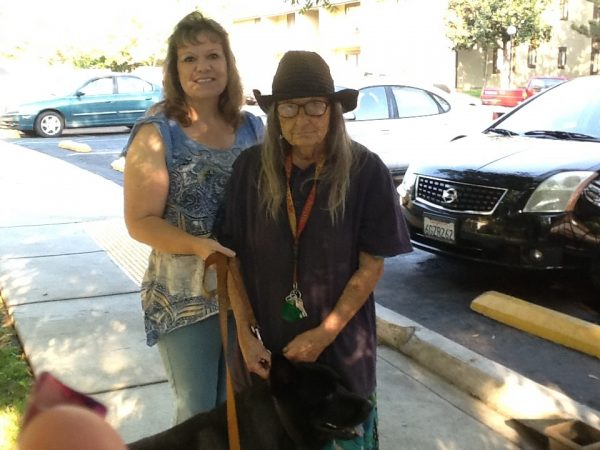I became an IHSS provider 14 years ago when my daughter, Shantal, received a traumatic brain injury in a horrific accident. Shantal was in a coma for a while and experienced memory loss. The doctors thought she would never walk again. I quit my job as a medical assistant to care for her full-time. I believe it is because of that in-home care that Shantal, now 33, was able to walk again and now lives independently.
Though my daughter was fortunate enough to receive the care she needed, my second client, an 83-year-old woman named Ethal, needed advocacy to get enough care. Ethal is legally blind and lives with several conditions including bipolar disorder, diabetes, thyroid issues and a lot more. Her unique set of conditions require specialized care, attention and time.
In March, Ethal’s 38 IHSS hours a month were cut to 33 because she lives with an adult son. I went to our local county office and explained that Ethal’s son lives with schizophrenia and he is not involved in her care, but was told her hours would not be restored—and that she could be put in a nursing home if the amount of hours was not enough.
Like any caregiver would be, I was furious and frustrated on behalf of my client. I thought there was nothing I could do to help her. But then I heard about an Advocacy Council workshop being held at my local UDW office. I was excited to learn that the workshop would provide providers with the tools and assistance to get more hours for our clients.
I told our story to the Advocacy Council, and UDW contacted my county office on our behalf. With a phone call to the right person, Ethal’s hours were not only restored, but increased to 57 a month. And because I continued to work for Ethal despite the cut to her hours, I received about $800 in retroactive pay.
This may not sound like much, but to Ethal and me it meant the world. We had thought we were alone and there was nothing we could do. I never want my client to feel again like she doesn’t have access to the care she needs and deserves, and now, because of help from the UDW Advocacy Council, I know that won’t happen.
I encourage my fellow IHSS providers to find out when the next Advocacy Council workshop near you is, and attend. If you don’t go, you’ll never know what options you may have to make the IHSS system work better for you and your client.
Debbie Crook is an IHSS provider for her daughter Shantel and an older woman named Ethal in Tuolumne County.
